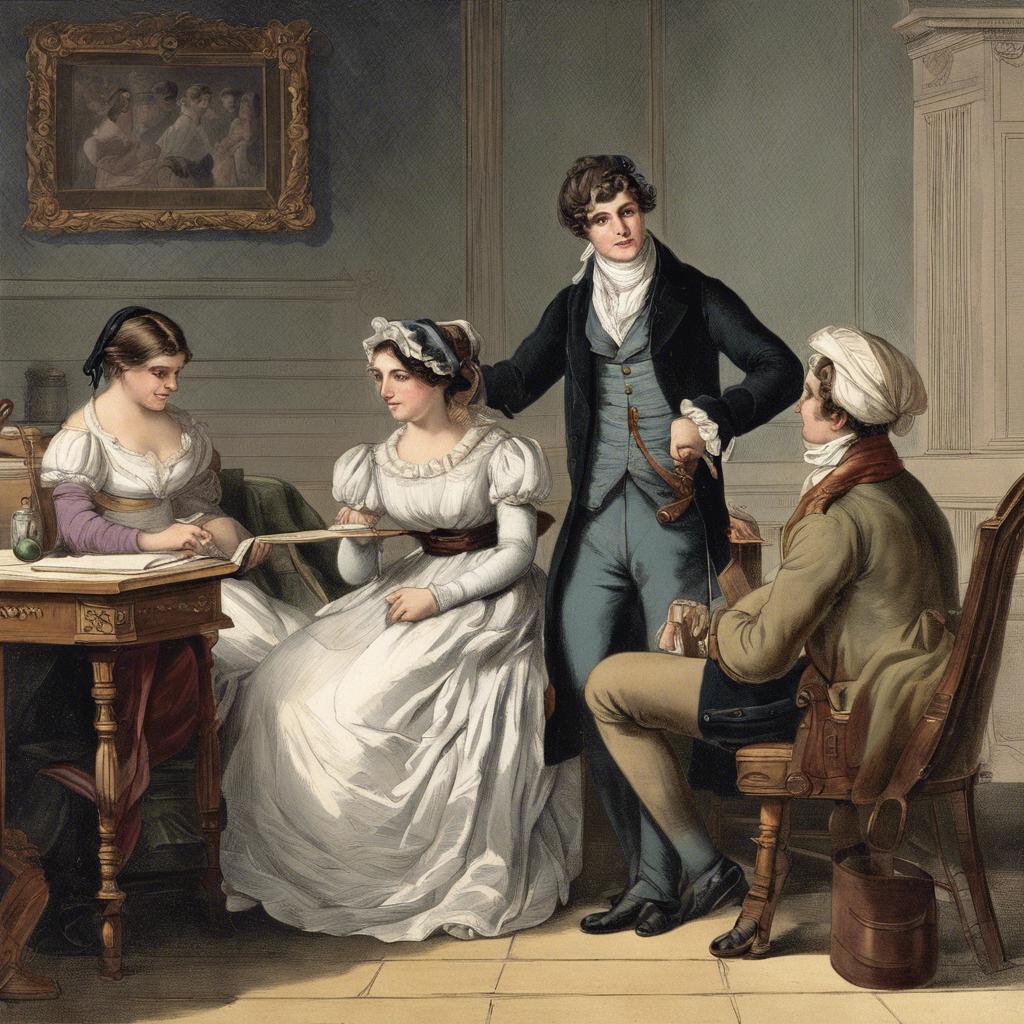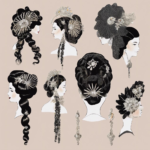In the vibrant tapestry of the Regency era, the occupations held by individuals revealed much about the social structure and economic climate of the time. From the elegant pursuits of the upper classes to the toilsome labors of the working poor, the diverse array of occupations during this period shaped the fabric of society in profound ways. Join us as we delve into the world of Regency era occupations, exploring the roles and responsibilities that defined the lives of individuals across different strata of society.
Step Into the World of Cheryl Bolen
Dive into the enchanting stories of love, intrigue, and elegance set in the Regency Era. Cheryl Bolen's novels offer timeless romance and captivating tales that will leave you wanting more.
Explore Cheryl Bolen's Books Now
Regency Era Occupations: A Reflection of Societal Norms and Values
In the Regency era, occupations were not just a means of earning a living, but also a reflection of the societal norms and values of the time. The type of work individuals engaged in often contributed to their social status and reputation within the community.
Some common occupations during this period included:
- Lawyers: Legal professionals played a significant role in upholding the laws of the land and settling disputes. They were highly respected members of society.
- Servants: Domestic service was a prevalent occupation, with individuals working as butlers, maids, and footmen in wealthy households. Service was often considered a stepping stone to higher positions.
- Artisans: Skilled craftsmen such as blacksmiths, carpenters, and tailors were essential for producing goods and clothing. Their workmanship was valued for its quality and precision.
| Occupation | Role |
|---|---|
| Clergy | Provided spiritual guidance to the community |
| Physicians | Treated illnesses and injuries |
the occupations of the Regency era reflected the hierarchical structure of society, with individuals occupying roles that were dictated by their social standing. While some occupations offered prestige and influence, others were seen as menial tasks to be performed by the lower classes. This division of labor was a reflection of the values and expectations of the time.
The Role of Women in Regency Era Occupations: Breaking Barriers and Challenging Gender Norms
During the Regency Era, women played a significant role in challenging traditional gender norms by entering occupations that were previously dominated by men. Despite societal expectations, many women pushed boundaries and broke barriers to pursue careers in various fields.
Some of the occupations that women commonly held during the Regency Era included:
- Writer
- Actress
- Teacher
- Nurse
- Artist
Women in these occupations faced numerous challenges, such as:
- Gender discrimination
- Lack of opportunities for advancement
- Limited educational options
- Social stigma
- Unequal pay
Popular Professions Among the Upper Class in Regency Era England
In Regency Era England, the upper class had a distinct set of professions that were considered prestigious and sought after. These professions not only provided financial stability but also social status and influence within the elite circles of society.
Some popular professions among the upper class during this time included:
- Barrister: Barristers were highly respected lawyers who represented clients in court cases. They were known for their extensive knowledge of the law and persuasive skills.
- Member of Parliament: Many members of the upper class held seats in Parliament, where they could shape laws and policies that affected the country. This position provided both power and prestige.
- Landowner: Owning land and managing estates was a common occupation among the upper class. Landowners were responsible for overseeing agricultural production and managing tenant farmers.
| Profession | Description |
|---|---|
| Gentleman | A man of leisure who did not need to work for a living |
| Army Officer | Served in the military and often bought commissions |
Recommendations for Further Research on Regency Era Occupations: Exploring Untapped Historical Narratives
During the Regency Era, occupations played a crucial role in shaping society and the economy. To further explore this fascinating time period, there are several recommendations for researchers to delve into untapped historical narratives:
1. **Dive into the lives of domestic servants:** While the lives of the upper classes during the Regency Era have been extensively documented, there is still much to uncover about the experiences of domestic servants. Research could focus on the daily routines, challenges, and relationships within the servant hierarchy.
2. **Examine the impact of industrialization on traditional occupations:** The Regency Era marked a period of significant industrial growth, which had a profound impact on traditional occupations. Researchers could investigate how new technologies and industries affected employment patterns, wages, and working conditions.
3. **Explore the role of women in non-traditional occupations:** While women in the Regency Era were often limited to certain occupations, there were instances of women breaking barriers and entering male-dominated fields. Further research could shed light on these pioneering women and their contributions to various professions.
In Retrospect
the Regency era was a time of great social and economic change, which led to the emergence of new and diverse occupations. From the life of a governess to the responsibilities of a coachman, individuals from all walks of life found their place in the rapidly evolving society of the early 19th century. The legacies of these occupations continue to shape the modern world, serving as a reminder of the resilience and adaptability of the human spirit in the face of ever-changing circumstances. As we reflect on the rich tapestry of Regency era occupations, we are reminded of the enduring importance of hard work, determination, and innovation in the pursuit of success.


